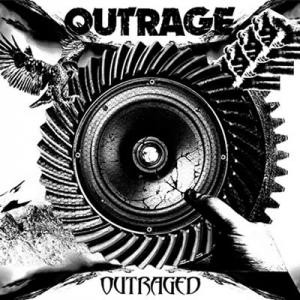Outraged
Emotional reaction to perceived injustice or offense
Outraged is an emotional response characterized by feelings of anger, shock, and indignation, typically triggered by a perceived injustice, offense, or wrongdoing. This reaction can be directed towards individuals, groups, institutions, or societal norms and can manifest in various forms, including verbal expressions, physical actions, and social movements.
Causes[edit | edit source]
Outrage can be caused by a wide range of factors, including but not limited to:
- Injustice: Perceived unfair treatment or violation of rights.
- Discrimination: Unfair treatment based on race, gender, age, or other characteristics.
- Corruption: Dishonest or fraudulent conduct by those in power.
- Violence: Acts of physical aggression or harm.
- Environmental destruction: Damage to the natural environment.
Manifestations[edit | edit source]
Outrage can manifest in several ways, including:
- Protests: Public demonstrations expressing strong objection.
- Social media campaigns: Online movements to raise awareness and demand change.
- Boycotts: Refusal to purchase goods or services from offending entities.
- Petitions: Formal requests signed by individuals demanding action or change.
Psychological Aspects[edit | edit source]
The psychological aspects of outrage involve complex emotional and cognitive processes. It often includes:
- Empathy: The ability to understand and share the feelings of others.
- Moral reasoning: Judgments about what is right and wrong.
- Group dynamics: The influence of social groups on individual behavior.
Historical Examples[edit | edit source]
Throughout history, there have been numerous instances where outrage has played a significant role in societal change. Some notable examples include:
- The Civil Rights Movement in the United States.
- The Women's Suffrage Movement.
- The Anti-Apartheid Movement in South Africa.
Impact on Society[edit | edit source]
Outrage can have both positive and negative impacts on society. On the positive side, it can lead to social reforms, increased awareness, and justice. On the negative side, it can result in violence, division, and social unrest.
See Also[edit | edit source]
References[edit | edit source]
Search WikiMD
Ad.Tired of being Overweight? Try W8MD's physician weight loss program.
Semaglutide (Ozempic / Wegovy and Tirzepatide (Mounjaro / Zepbound) available.
Advertise on WikiMD
|
WikiMD's Wellness Encyclopedia |
| Let Food Be Thy Medicine Medicine Thy Food - Hippocrates |
Translate this page: - East Asian
中文,
日本,
한국어,
South Asian
हिन्दी,
தமிழ்,
తెలుగు,
Urdu,
ಕನ್ನಡ,
Southeast Asian
Indonesian,
Vietnamese,
Thai,
မြန်မာဘာသာ,
বাংলা
European
español,
Deutsch,
français,
Greek,
português do Brasil,
polski,
română,
русский,
Nederlands,
norsk,
svenska,
suomi,
Italian
Middle Eastern & African
عربى,
Turkish,
Persian,
Hebrew,
Afrikaans,
isiZulu,
Kiswahili,
Other
Bulgarian,
Hungarian,
Czech,
Swedish,
മലയാളം,
मराठी,
ਪੰਜਾਬੀ,
ગુજરાતી,
Portuguese,
Ukrainian
Medical Disclaimer: WikiMD is not a substitute for professional medical advice. The information on WikiMD is provided as an information resource only, may be incorrect, outdated or misleading, and is not to be used or relied on for any diagnostic or treatment purposes. Please consult your health care provider before making any healthcare decisions or for guidance about a specific medical condition. WikiMD expressly disclaims responsibility, and shall have no liability, for any damages, loss, injury, or liability whatsoever suffered as a result of your reliance on the information contained in this site. By visiting this site you agree to the foregoing terms and conditions, which may from time to time be changed or supplemented by WikiMD. If you do not agree to the foregoing terms and conditions, you should not enter or use this site. See full disclaimer.
Credits:Most images are courtesy of Wikimedia commons, and templates Wikipedia, licensed under CC BY SA or similar.
Contributors: Prab R. Tumpati, MD

